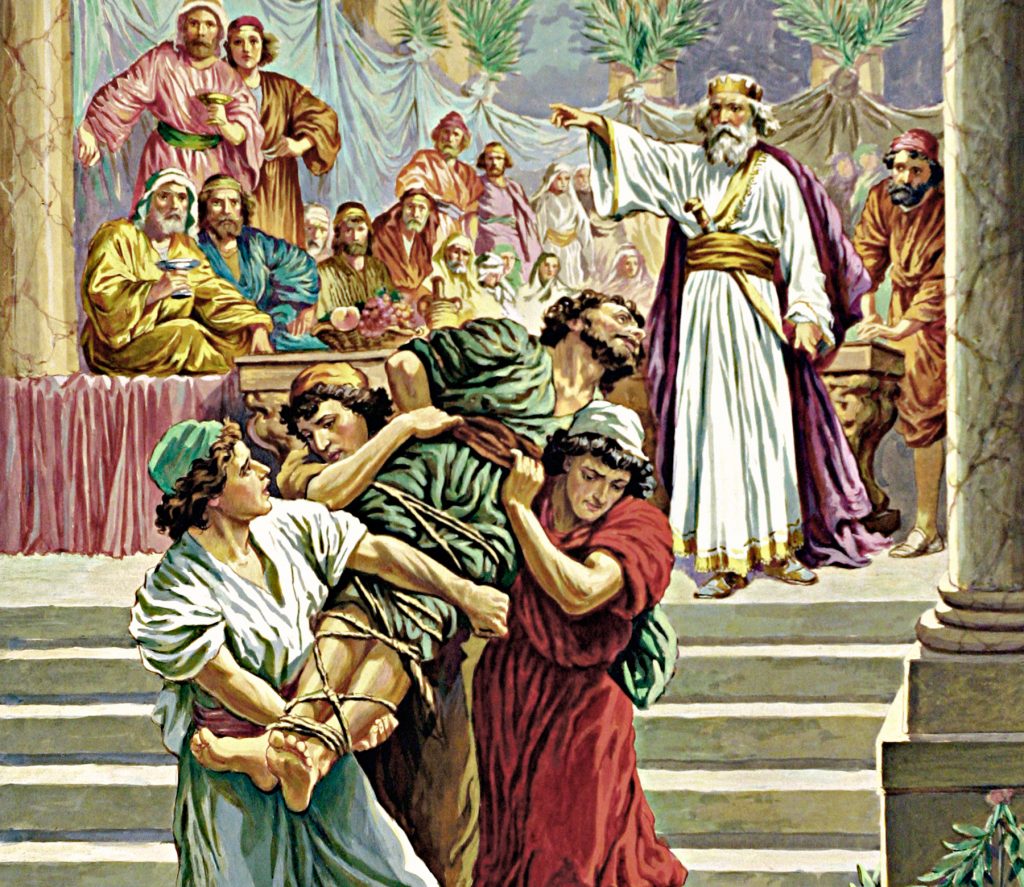Reflection: 28th Sunday in Ordinary Time

Is 25:6-10a; Phil. 4:12-14, 19-20; Mt. 22:1-14
Similar to the parable of the Owner of the vineyard and the tenants, the parable of today is also allegorical. We can identify the characters and the events referred to. God is the King who prepares a wedding feast for his Son, Jesus. The first to be invited to the banquet were the Israelites, and the late comers were the gentiles. The servants sent to summon the guests were the prophets and later the apostles.
Already in our first reading from Isaiah, we read “the Lord of hosts will provide for all peoples a feast of rich food and choice wines,” a banquet not only for Israelites but for all peoples. Then heaven is described in Rev19:7-9 as the “wedding feast of the Lamb,” the Bride being the Church composed of all those saved from all tongues, races, and nations. The Israelites from the call of Abraham up to the time of Jesus were privileged to be called by God. Ever since Moses built the Tent of Meeting in the desert, they could hold feasts and “make merry” on holy days of pilgrimage in Jerusalem. These external rituals were already prescribed in the Torah, a foreshadowing of the Banquet in heaven. But the Israelites rejected God’s call, built altars to other gods, and offered sacrifices on high places, and Samaria built temples in the Northern Kingdom to offend the Lord who chose Jerusalem: “they went away one to his farm, another to his business.” The prophets who came to call them to conversion, they laid hold of them, “mistreated them and killed them.” God sent conquerors to burn Jerusalem and take many prisoners into exile, first in 587 B.C. when the Babylonians came, and afterwards in 70 A.D. when the Romans destroyed Jerusalem and banned the Israelites from their own land.
When Jesus came, he first limited himself to preach and call the Israelites. When the Canaanite woman from Tyre and Sidon cried out to him in faith, he opened his heart to her. In the Acts of the Apostles Peter was led by the Holy Spirit to baptize the household of Cornelius, the Roman Centurion. Still the proclamation of the Gospel was primarily to the Jews. When the Jews even in the Diaspora resisted the invitation to the Banquet of Life, Paul and Barnabas turned to the Gentiles; first to the Greek speaking, then to Rome and throughout the Roman Empire. “The servants went out into the streets and gathered all they found, bad and good alike.” Among the Jewish converts there were martyrs who died for the faith, the Apostles and first disciples among them. In our time there was Edith Stein, a Jewess convert who entered the Carmelite monastery as Sis. Benedicta of the Cross, and was killed by the Nazis in Auschwitz. Among the gentile Christians many more died for the faith. After Constantine gave freedom to the Christians, there came out holy bishops and priests, hermits, cenobites and monks. Soldiers like Cornelius and Sebastian, a deacon like Lawrence of Rome, girls like Agatha and Cecilia, many martyred in the Iron Curtain and are stilled dying for the faith in Communist China and in the hands of the ISIS. The banquet hall was filling up.
And yet among the many gentile converts to Christianity, there were those who apostatized in face of martyrdom. Others turned to pagan philosophy distorting the Gospel. Others did not sincerely follow the Lord, but were seeking, like Judas, worldly wealth and glory. There were monks who entered the monastery seeking for comfort and prestige. They were not there to follow the Lord nor to imitate his way of life, to practice the virtues, and engage in prayer and works of mercy. This was the guest not dressed in wedding garment. It is not enough to bear the name Christian, one must truly be a follower of Christ to be worthy of the Banquet of Life.
